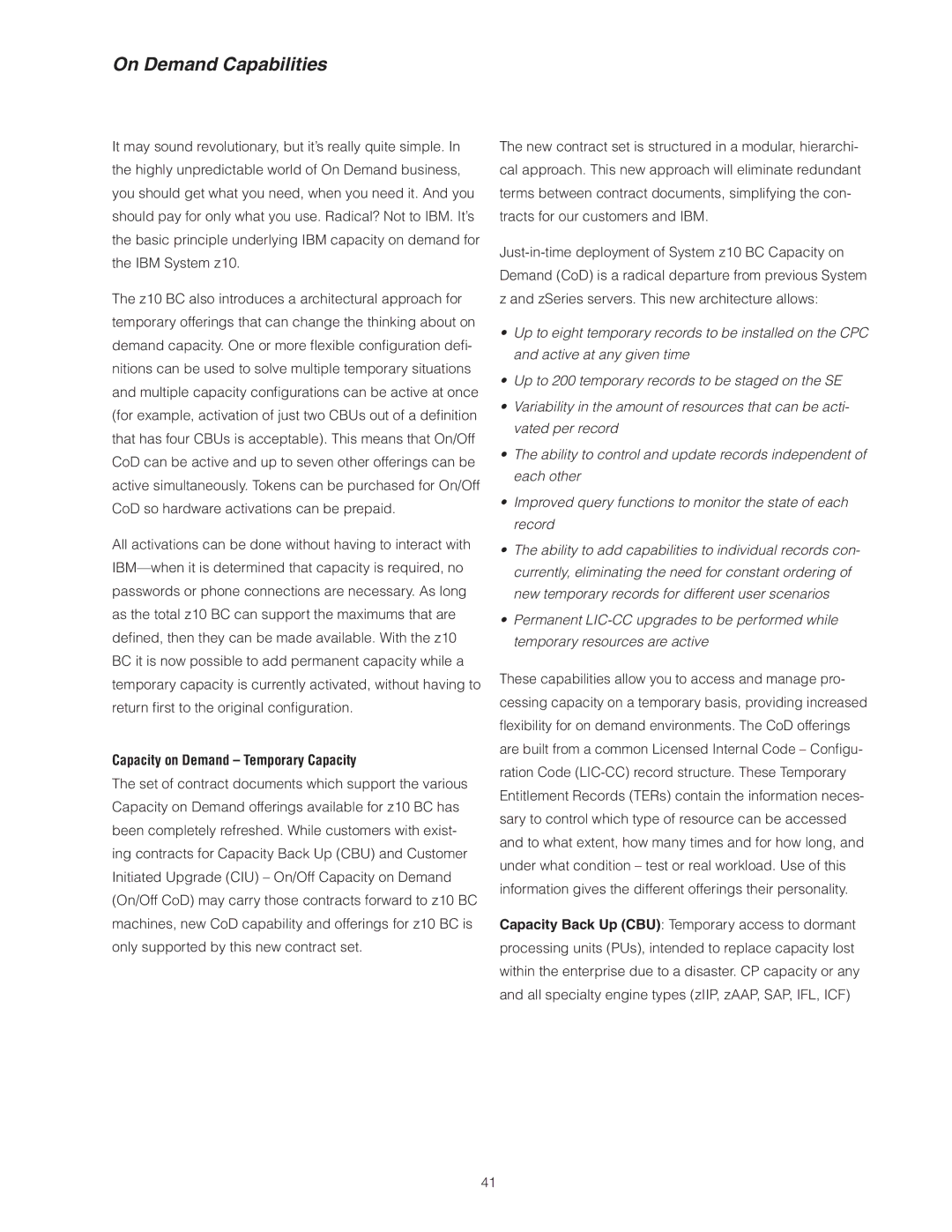On Demand Capabilities
It may sound revolutionary, but it’s really quite simple. In the highly unpredictable world of On Demand business, you should get what you need, when you need it. And you should pay for only what you use. Radical? Not to IBM. It’s the basic principle underlying IBM capacity on demand for the IBM System z10.
The z10 BC also introduces a architectural approach for temporary offerings that can change the thinking about on demand capacity. One or more fl exible confi guration defi - nitions can be used to solve multiple temporary situations and multiple capacity confi gurations can be active at once (for example, activation of just two CBUs out of a defi nition that has four CBUs is acceptable). This means that On/Off CoD can be active and up to seven other offerings can be active simultaneously. Tokens can be purchased for On/Off CoD so hardware activations can be prepaid.
All activations can be done without having to interact with
Capacity on Demand – Temporary Capacity
The set of contract documents which support the various Capacity on Demand offerings available for z10 BC has been completely refreshed. While customers with exist- ing contracts for Capacity Back Up (CBU) and Customer Initiated Upgrade (CIU) – On/Off Capacity on Demand (On/Off CoD) may carry those contracts forward to z10 BC machines, new CoD capability and offerings for z10 BC is only supported by this new contract set.
The new contract set is structured in a modular, hierarchi- cal approach. This new approach will eliminate redundant terms between contract documents, simplifying the con- tracts for our customers and IBM.
•Up to eight temporary records to be installed on the CPC and active at any given time
•Up to 200 temporary records to be staged on the SE
•Variability in the amount of resources that can be acti- vated per record
•The ability to control and update records independent of each other
•Improved query functions to monitor the state of each record
•The ability to add capabilities to individual records con- currently, eliminating the need for constant ordering of new temporary records for different user scenarios
•Permanent
These capabilities allow you to access and manage pro- cessing capacity on a temporary basis, providing increased
flexibility for on demand environments. The CoD offerings are built from a common Licensed Internal Code – Confi gu- ration Code
Capacity Back Up (CBU): Temporary access to dormant processing units (PUs), intended to replace capacity lost within the enterprise due to a disaster. CP capacity or any and all specialty engine types (zIIP, zAAP, SAP, IFL, ICF)
41
